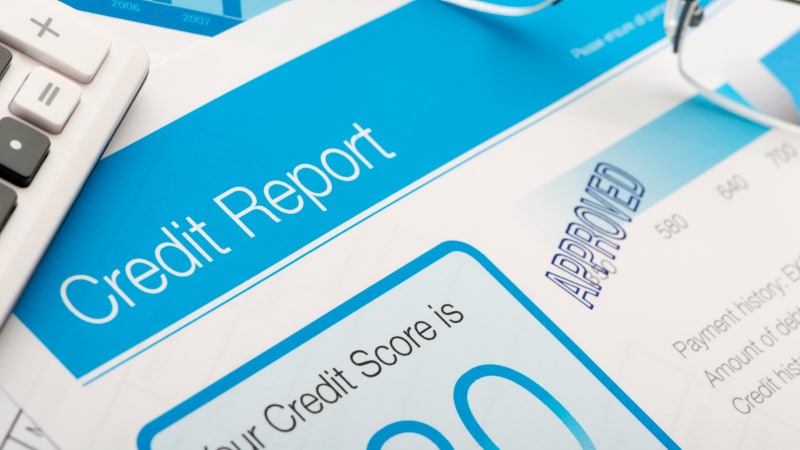What you need to know about credit

How many people would admit that they should be more informed about credit? It's an intimidating topic that sometimes leaves the average person with more questions than answers. For example: What is a credit score? What is a good credit score? How does credit impact large financial decisions like a mortgage, auto loan, or credit card?
Good news: You don't have to wonder about the basics of credit again because we have the answers to all the questions you've been too embarrassed, ashamed or scared to ask.
1. What is credit?
Generally, "credit" refers to a contractual agreement where a borrower receives money from another person or institution (usually a bank) with an agreement to pay the money back some time in the future, typically with interest. For the most part, when people talk about their "credit," they're talking about their credit history, which is a record of their credit usage.
Lenders, like Chase, will examine your credit history along with a number of other factors when determining whether you are eligible for loans, like a mortgage, auto loan, or credit card. People with a higher credit score will generally receive better terms for these services.
2. Does my credit score matter if I'm not looking for a loan?
Yes. Your credit history can factor into a number of different areas of your life. Property rental agencies, potential employers, mobile phone companies, and insurance companies can all use credit reports.
3. How do I find out if I have good credit?
You need to find out your credit score. Think of a credit score as a numerical representation of your credit history.
This number is calculated by a private company in order to determine your credit worthiness. The calculation is based on your credit report, which includes your loan paying history and status of credit accounts.
4. What does my credit score mean?
Understandably, many view a credit score as an arbitrary three-digit number. To understand the measuring stick, a credit score can range from 100 to 850.
Credit score ranges include poor: 300–579, fair: 580–669, good: 670–739, very good: 740–799, and exceptional: 800+.
Even if your credit score is good, it's vital not to get complacent. Remember that different lenders have different standards and you should build your score to lay a foundation for your financial future.
5. Does having a credit card help or hurt if I'm trying to build credit?
Credit is a bit of a catch-22: You have to use it to prove you can be trusted with it.
In order to establish good credit, you must build a record of usage. If you use your credit card, and pay your bill on time, you are demonstrating financial responsibility to lenders.
Missing payment deadlines or paying less than your minimum payment can negatively impact your credit score.
In short: Credit cards can help you build credit as long as you use them responsibly.
6. How can I improve my credit score?
First, be realistic and set incremental goals. Improving your credit score takes time, and the best way to rebuild credit is to manage it responsibly. However, there are steps you can start to take immediately, including:
- Paying your bills on time. Payment history is an important factor when it comes to calculating your credit score. So, if you struggle with meeting payment deadlines, it's time to set up some reminders or enroll in autopay.
- Paying down your debt. Your credit utilization—meaning the size of your card balance—is the second biggest factor. If you're carrying debt, consider creating a payment plan that prioritizes paying down high-interest debt first.
- Checking your credit report. Remember: Knowledge is power. If you check your credit report regularly, you'll be in a better position to spot and remedy any errors.
7. Does checking your credit score lower it?
This is a common question with a somewhat complex answer. It comes down to the difference between "soft inquiries" and "hard inquiries," into your credit report.
Soft inquiries occur when you check your own credit report, when your credit report is checked as part of a background check, or when a financial institution administers a pre-approved credit card/loan offer. Soft inquiries do not negatively affect your credit score.
However, when a lender makes an inquiry (aka a request for your credit report information), there is a small impact on your credit score. These inquiries, which can happen when you apply for new credit or a loan, are called "hard inquiries." But their impact begins to fade after the first 12 months, and they drop off your credit report completely after two years.
8. Will shopping for rates lower my credit score?
If you are applying for a mortgage or car loan and 'rate shopping,' it's likely that several lenders will check your score around the same time. In that case, as long as all the inquiries fall within a 30-day period, they'll only be treated as one inquiry and won't have an impact on your score.
9. How do I know if I have the right credit card for my needs?
Think about both your short and long-term financial goals to make the right decision for your needs.
If you have a large balance on a variable rate credit card, you might consider transferring that balance to a no-fee, low or zero interest credit card that can offer relief as you pay back the balance over time.
Or, if you are looking to get rewarded when you buy something, consider applying for a card that gives you rewards like cash back or travel so you can benefit from those purchases.



